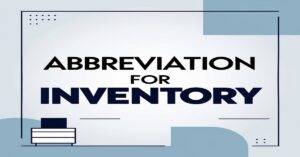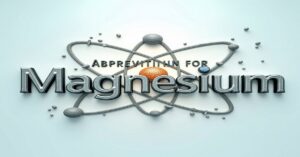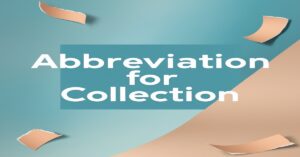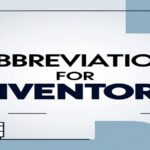When you think of adjectives, the letter Z may not immediately come to mind. Yet, this often-overlooked letter offers a rich variety of adjectives that can add depth and flair to your vocabulary. Whether you’re a writer, student, or simply someone looking to elevate your language skills, learning new words is always a valuable endeavor.
This article explores over 150+ adjectives starting with the letter Z, offering you diverse options to describe everything from the mundane to the extraordinary.
Why Focus on Adjectives Starting with Z?
The letter Z is one of the least used in the English language, but this doesn’t mean its words lack impact. In fact, Z adjectives often carry a unique, sometimes dramatic flair. By incorporating them into your writing or speech, you can impress your audience, elevate your descriptive abilities, and infuse your language with a fresh twist.
Imagine writing a descriptive scene where a character’s mood shifts from the “zealous” to the “zany.” Or perhaps you’re describing a landscape that is “zen” and “zonal” in nature. These rich, Z-inspired adjectives add an unexpected layer of creativity to your work.
The Power of Z Adjectives
The power of adjectives starting with Z lies in their versatility and ability to evoke strong imagery. From “zippy” to “zoological,” these words can describe anything from personalities to physical traits to entire environments. Below, we’ve broken them down into categories to help you understand where and how to use them most effectively.
Adjectives for Personality and Behavior
These Z adjectives can describe a person’s character, actions, or temperament. Perfect for enriching descriptions of people and their interactions:
- Zealous: Full of enthusiasm or fervor.
- Zany: Amusingly unconventional or eccentric.
- Zestful: Full of energy, enthusiasm, or excitement.
- Zippy: Lively, fast, and energetic.
- Zigzagging: Moving in sharp angles, often unpredictable in action or direction.
- Zoological: Related to animals, often describing someone who has an interest in animals or wildlife.
Adjectives for Appearance or Nature
Describing things like landscapes, objects, or physical attributes with Z adjectives can add a distinctive touch. Here are some to consider:
- Zonal: Relating to or resembling a zone, often used in geographical contexts.
- Zigzag: Characterized by sharp angles and alternating directions.
- Zonal: Arranged or organized into zones, such as “zonal vegetation.”
- Zucchini-like: Resembling the squash in size, shape, or color.
- Zircon-like: Resembling the mineral zircon in appearance or color.
Adjectives for Mood and Emotion
Z adjectives are also great for conveying feelings, atmospheres, or emotions in a vivid, creative way:
- Zoned-out: A state of being mentally distant or disconnected.
- Zany: While it describes behavior, it can also set a mood of fun or absurdity.
- Zen: Calm, peaceful, and meditative.
- Zealous: Often used to describe a fervent, sometimes overly passionate attitude or demeanor.
Adjectives for Objects or Conditions
When describing the world around you—whether physical or abstract—these Z adjectives can be especially useful:
- Zippy: Quick and full of energy, often used to describe fast-moving objects.
- Zinc-plated: Coated or treated with zinc, often referring to metal surfaces.
- Zirconic: Having the qualities or appearance of zircon (a mineral).
- Zero-gravity: Used to describe a weightless environment or experience.
- Zoological: Related to the science of animals or the study of zoology.
How to Use Z Adjectives in Your Writing
Incorporating Z adjectives into your writing can seem challenging at first, but it’s all about finding the right context. Consider these tips:
- Mix it up: Don’t overload your writing with too many rare words. Instead, sprinkle them in naturally for impact.
- Focus on the feeling: Z adjectives are often evocative and emotional. Use them when you want to convey strong, distinctive feelings.
- Be descriptive: The more vividly you describe something, the more your readers will be able to picture it in their minds. Use adjectives like “zany” or “zealous” to bring a scene or character to life.
For instance, instead of simply saying “The event was energetic,” you might say, “The event was zippy and zesty, with a zealous crowd.” The difference is subtle but effective.
Describing Personality and Behavior
These adjectives provide nuanced ways to describe someone’s actions, behaviors, and mental states.
- Zany: Comically or absurdly unconventional.
- Zealous: Showing great enthusiasm or fervor for a cause.
- Zippy: Full of energy and excitement.
- Zooty: Stylish or fashionable in a showy way.
- Zarathustrian: Having qualities associated with the philosopher Zoroaster, often relating to moral or spiritual beliefs.
- Zef: Associated with a South African subculture, often defiant or unpretentious.
- Zymotic: Referring to or caused by a contagious disease, often used figuratively for spreading ideas.
- Zenoic: Philosophical, particularly in terms of stoicism or a calm, rational mindset.
Describing Emotions and States of Being
These words can help you describe emotional states, moods, or even an individual’s mental condition.
- Zoned-out: Mentally distant or detached, usually due to distraction or relaxation.
- Zen: Calm and relaxed; in a peaceful state.
- Zany: Expressing absurdity or comic eccentricity, often used to describe moods or situations that are delightfully ridiculous.
- Zestful: Full of enthusiasm and energy, often used to describe a cheerful, positive demeanor.
- Zombified: Lacking awareness, as if in a state of stupor or dullness.
- Zonal: Pertaining to distinct zones or regions, often used metaphorically to describe focused mental states.
- Zigzagged: Referring to an erratic or unpredictable change in emotion or mood.
- Zippity: Cheerfully energetic or bouncy in mood.
Describing Appearance or Physical Traits
These adjectives can be applied to physical traits, from a person’s looks to the environment around them.
- Zirconic: Shiny and gem-like, resembling the gemstone zircon.
- Zinc-coated: Covered with a protective layer of zinc, often used to describe metals.
- Zoonotic: Relating to diseases that can be transmitted from animals to humans.
- Zucchini-like: Resembling a zucchini in shape or size, often used in informal comparisons.
- Zebra-like: Marked with black-and-white stripes or patterns.
- Zigzag-shaped: Having a sharp, alternating pattern of angles.
- Zircon-colored: Having the appearance or color of zircon gemstones, typically clear or pale.
- Zippered: Having a zipper, often used to describe clothing or bags.
- Zygomorphic: Symmetrical, especially in relation to flowers or organisms that are symmetrical along one axis.
Describing Objects, Conditions, or Qualities
Z adjectives can also describe the physical world around us, from objects to conditions that we observe.
- Zero-gravity: The condition of weightlessness or absence of gravitational pull, often used in space contexts.
- Zonal: Organized or separated into different zones, often describing areas or climates.
- Zinc-alike: Resembling or having the qualities of zinc, often in reference to metal materials.
- Zippier: More energetic or faster, typically used to compare two things.
- Zirconium-based: Referring to materials that are made or composed of zirconium.
- Zymotic: Pertaining to or caused by a contagious or infectious disease, sometimes used in the context of spreading concepts or trends.
- Zodiacal: Relating to the zodiac, often used to describe astrological signs or celestial movements.
- Zeroed: Having no value or importance; nullified or reduced to nothing.
- Zapping: Describing something as being charged with energy or intensity, often used informally to describe a sudden change.
Adjectives for Nature and the Environment
These adjectives provide a distinctive way to describe the natural world, whether it’s the environment, flora, or fauna.
- Zonal: Referring to or organized in zones, often used in geographical or ecological contexts.
- Zucchini-like: Resembling zucchini in shape, size, or texture, often used to describe plants or fruits.
- Zoological: Pertaining to animals, often used in relation to scientific studies or wildlife.
- Zarathustrian: Related to the teachings of the Persian philosopher Zoroaster, used metaphorically in philosophy or nature.
- Zen-like: Exhibiting peacefulness or simplicity, often used to describe serene, natural landscapes or environments.
- Zirconite: Resembling or related to zircon, often used to describe minerals or stones.
- Zebra-striped: Having alternating stripes, often used in relation to animals or plants with striped patterns.
Describing Sound or Movement
Z adjectives are perfect for describing sounds or movements, adding dynamic descriptions to your narrative.
- Zinging: A high-pitched sound, often sharp or quick, like the sound of something speeding through the air.
- Zooming: Moving quickly, especially at high speed, such as a car zooming past.
- Zapping: A quick, sharp movement or sound, often describing electronic devices or sudden motions.
- Zigzagging: Moving in a pattern of sharp turns, often used to describe both literal movement and figurative changes.
- Zipping: Moving swiftly, like a zipper or a fast-moving object.
- Zipping-around: Moving energetically and quickly, often in an erratic manner.
Unique and Rare Z Adjectives
These rare and unique adjectives are perfect for adding originality to your vocabulary.
- Zareba-like: Referring to a protective fence or enclosure, often used in African contexts.
- Zirconized: Treated with or resembling zircon, typically in reference to materials or gemstones.
- Zymogenetic: Relating to the production of zymogen, which is an inactive enzyme precursor.
- Zygomorphic: Symmetrical, especially in reference to plants or organisms.
- Zodiacal: Pertaining to the zodiac, often describing celestial phenomena or astrological signs.
- Zymological: Relating to the science of fermentation.
How to Integrate These Z Adjectives into Your Language
Learning and using Z adjectives effectively can add flavor and precision to your vocabulary. Here are some tips to incorporate them into your daily communication:
- Be mindful of context: Use rare or unique Z adjectives sparingly so they don’t overwhelm the reader. Choose words that fit naturally within the context of your writing.
- Mix with other words: Combine Z adjectives with other adjectives to create more powerful and descriptive imagery. For example, “zany and zestful” or “zoned-out and zany.”
- Use for emphasis: Z adjectives can be great for emphasizing key qualities or moods. Don’t be afraid to use them to draw attention or add personality to your writing.
By regularly using these words, you can begin to create more colorful and evocative descriptions that leave a lasting impression.
Describing Personality and Behavior
These adjectives help convey the nature of a person’s actions, mindset, or overall demeanor.
- Zany: Comically wild or absurd in behavior, full of eccentricity.
- Zealous: Showing great passion or enthusiasm for a cause.
- Zesty: Full of energy, excitement, or liveliness.
- Zippy: Quick, energetic, and full of life.
- Zigguratic: Reaching or rising in a stepped manner, often used figuratively for someone who takes a progressive, though unconventional, approach.
- Zoneless: Without a defined space or limits, often applied to behavior that defies boundaries.
- Zonal: Structured or organized into distinct sections or zones.
- Zombified: Lacking awareness or the ability to think clearly, as if in a trance.
- Zodiacal: Related to astrology, often describing someone whose behavior is influenced by astrological signs.
- Zany-hearted: Full of quirky, imaginative energy or spirit.
Describing Emotions and States of Being
These adjectives describe how someone feels or the emotional state of a situation.
- Zoned-out: Detached or distracted, often in a way that indicates disinterest or deep thought.
- Zen: Calm, peaceful, and in a meditative state.
- Zappy: Excited or energetic, often in a spontaneous or impulsive manner.
- Zombified: In a dull, lifeless state, as though lacking energy or awareness.
- Zoonotic: Pertaining to diseases that can be transmitted from animals to humans, often used metaphorically for things that spread between groups.
- Zealous: Characterized by great passion or fervor, especially in support of a cause.
- Zoning: Referring to a mental state where one is deep in thought or absorbed in something.
- Zippy: Quick and energetic, with a bright or enthusiastic vibe.
- Zingy: Full of energy, often associated with a sharp, refreshing sensation.
- Zeroth: An early, foundational state, especially when referring to concepts or stages.
Describing Appearance or Physical Traits
Use these adjectives to add detail when describing someone’s appearance, surroundings, or even objects.
- Zigzag: Having sharp turns or angles, often used to describe a physical path or movement.
- Zircon: Having the quality or appearance of zircon, typically clear, shiny, and gem-like.
- Zinc-coated: Covered with a protective zinc layer, often used for metal objects.
- Zirconium: Pertaining to the metallic element zirconium, often used to describe metals or materials.
- Zonelike: Resembling or characterized by zones, often used to describe spatial arrangements or layouts.
- Zebra-striped: Having a pattern of alternating black and white stripes, much like a zebra.
- Zucchini-like: Resembling zucchini in appearance, especially in shape or texture.
- Zodiac-shaped: Shaped like the symbols or the circular layout of the zodiac signs.
- Zero-gravity: Describing a state of weightlessness, often used in space contexts.
- Zircon-colored: Referring to the colors of the zircon gemstone, typically clear, pale blue, or colorless.
Describing Objects or Things
These adjectives are excellent when you need to describe physical objects or certain conditions of things.
- Zoned-out: Often used to describe an object or thing that seems to be disconnected or not functioning as expected.
- Zippered: Having a zipper, typically used in clothing or bags.
- Zinc-enriched: Containing or treated with zinc, often referring to materials with enhanced properties.
- Zucchini-shaped: Resembling the shape of a zucchini, typically elongated and cylindrical.
- Zeroed-in: Focused intently, often used when an object is closely observed or targeted.
- Zirconic: Describing a material that has the characteristics of zircon, often used for precious gemstones or minerals.
- Zesty: Having a strong, often tangy flavor or quality, used for food or objects with a sharp taste or impression.
- Zoomorphic: Resembling an animal in form or structure, especially used in art or sculpture.
- Zirconium-based: Made with or composed of zirconium, commonly used in materials science.
- Zonal: Organized into or divided into zones, frequently used in describing layouts or climates.
Describing Nature and the Environment
Use these Z adjectives to describe the world around you, whether it’s landscapes, flora, or environmental conditions.
- Zoological: Pertaining to animals or zoology, often used to describe animal-related environments or studies.
- Zen-like: Exhibiting calm, peace, or tranquility, often used to describe natural landscapes that evoke serenity.
- Zonal: Relating to zones or divisions, often used to describe geographical or climatic regions.
- Zigzagging: Moving in sharp turns or alternating directions, commonly used for describing natural or unpredictable movement.
- Zinc-coated: Describing natural elements or surfaces that are treated with zinc to prevent corrosion.
- Zucchini-like: Referring to plants or shapes resembling zucchinis in form.
- Zircon-colored: Describing the color of something that resembles zircon, typically in a clear or gem-like hue.
- Zebra-striped: Used to describe natural patterns or organisms, like animals or plants that exhibit black and white stripes.
- Zoologic: Pertaining to animals, especially used in the context of their natural habitat or behavioral characteristics.
- Zonal: Organizing natural areas into distinct zones or regions, often used in ecology.
Describing Movement or Action
These adjectives add energy to descriptions of actions, whether it’s someone’s behavior or an object in motion.
- Zipping: Moving quickly or energetically, often used to describe fast-moving objects or people.
- Zipping-around: Moving in a lively, fast, and energetic manner.
- Zigzagging: Moving in sharp, alternating turns, often describing a path or action.
- Zipping-fast: Moving at high speed, often used for fast objects or actions.
- Zapping: Moving quickly with a sudden, sharp action, often used to describe swift, energetic movements.
- Zipping-away: Moving away quickly, often used to describe someone or something leaving at speed.
- Zooming: Moving rapidly, often used for vehicles, objects, or people speeding by.
- Zapping: A quick, sharp motion, sometimes referring to sudden changes in movement or direction.
Rare or Uncommon Z Adjectives
These adjectives are less commonly used but still valuable for adding unique flair to your language.
- Zymogenic: Pertaining to or involving the production of enzymes, often used in the context of biology or fermentation.
- Zymotic: Relating to contagious diseases, particularly those spread by microorganisms.
- Zarathustrian: Pertaining to the beliefs and teachings of Zoroaster, especially in a philosophical or spiritual context.
- Zef: A South African subculture that embraces non-conformity, often described as unconventional or anti-establishment.
- Zareba-like: Having the structure or qualities of a zareba, a type of enclosure used for protection in certain cultures.
- Zenoic: Relating to the philosopher Zeno or his teachings, often used to describe a calm, rational approach to life.
- Zygomorphic: Symmetrical along one axis, often used in reference to flowers or organisms with bilateral symmetry.
- Zodiacal: Referring to the zodiac, especially in terms of celestial phenomena or astrology.
- Zoonotic: Relating to diseases that can be transmitted from animals to humans, commonly used in medical or epidemiological contexts.
Describing Personality and Character
These adjectives add depth to how we describe people’s personalities, emotions, and overall behavior.
- Zebra-like: Strikingly unique or different, like the distinct black and white stripes of a zebra.
- Zealous: Marked by fervent devotion to a cause or goal.
- Zombielike: Resembling a zombie, often used to describe someone who is lifeless or sluggish.
- Zigzagging: Displaying a pattern of sudden changes in direction, often used figuratively for unpredictable behavior.
- Zesty: Full of spirit, enthusiasm, and energy.
- Zany: Eccentric or absurd in a funny way, often used to describe playful or wacky behavior.
- Zoned-out: Mentally distant or distracted, often in a way that suggests deep thinking or detachment.
- Zephyr-like: Light and gentle, like the wind (zephyr), often used to describe soft, pleasant characteristics.
- Zarathustrian: Philosophical or spiritual, often relating to Zoroastrianism or an ancient, wise outlook.
- Zany-hearted: Full of playful, unpredictable energy.
Describing Emotions and States of Being
These adjectives convey different emotional states, mental conditions, and overall feelings.
- Zippy: Full of energy and enthusiasm, moving at a fast pace.
- Zoned: Deeply absorbed or focused, often used in reference to a mental state.
- Zombified: Lacking vitality, as though under a trance or in a dull state.
- Zigzagged: Jittery or unpredictable, describing a situation or feeling that changes direction rapidly.
- Zapping: Energized or recharged, often used to describe a sudden burst of energy or activity.
- Zany: Playfully eccentric, full of quirky or humorous traits.
- Zeroth: Fundamental, or in its initial, primary state.
- Zemblan: An obscure term, referring to something mysterious, often evoking a sense of discomfort or darkness.
- Zygomorphic: Having bilateral symmetry; used in reference to living beings and sometimes referring to someone’s balanced state of being.
- Zymotic: Associated with infection or contagious disease, often used metaphorically to describe something that spreads rapidly.
Describing Appearance and Physical Traits
These adjectives help you vividly depict the physical aspects of people, objects, or environments.
- Zirconic: Describing something with a shiny, gem-like quality, similar to zircon.
- Zirconium-like: Similar to the properties of zirconium, often used to describe materials or objects that are durable and shiny.
- Zonal: Divided into sections or zones, often used in reference to layout or arrangement.
- Zebra-striped: Featuring black and white stripes, resembling the markings of a zebra.
- Zucchini-colored: Having a light green hue similar to zucchini, often used in food or design descriptions.
- Zigzagged: Having a pattern with sharp turns or angles, commonly used to describe shapes, paths, or designs.
- Zymotic: Relating to infections, this can also describe something spreading in a way that affects physical surroundings.
- Zircon-colored: Shining with a clear, bright, or gem-like quality, often used to describe precious materials.
- Zener-like: Referring to the properties of a Zener diode, used metaphorically to describe energy transmission or flow.
- Zeroed-in: Focused or concentrated, especially in a precise way, used to describe both physical and mental states.
Describing Movement or Action
These adjectives depict various types of movement, from quick to slow, erratic to graceful.
- Zipping: Moving quickly or energetically, often used to describe fast movement.
- Zooming: Moving rapidly, particularly used for vehicles or objects in motion.
- Zigzagging: Moving back and forth in sharp angles, often used to describe unpredictable or erratic movement.
- Zapping: Referring to a sudden burst of energy or action, often quick and impactful.
- Zipping-away: Moving away quickly, often used to describe rapid departures or changes in position.
- Zigged: Past tense of zigzagging, meaning to have moved in a jagged, unpredictable manner.
- Zapping: A rapid or sharp action, often used to describe a quick, forceful motion or impact.
- Zigzagged: To have moved in sharp angles or turns, typically indicating a winding path or an action.
- Zumping: A rare term referring to a sudden jump or leap, often used metaphorically for swift transitions.
- Zooming-by: Passing rapidly or swiftly, often used in reference to vehicles or fast-moving objects.
Describing Objects or Things
Use these adjectives to describe the qualities of objects, whether they are tangible items or more abstract concepts.
- Zoned-out: Describes an object or item that seems unconnected or disconnected from its surroundings, metaphorically speaking.
- Zinc-coated: Covered in a thin layer of zinc to prevent corrosion, commonly used in reference to materials.
- Zippered: Featuring a zipper closure, often used for bags, clothing, or cases.
- Zirconium-based: Composed of zirconium, a tough and heat-resistant material often used in industrial applications.
- Zero-gravity: Describing a state of weightlessness, often used in space-related contexts.
- Zircon-colored: Clear or gem-like in color, typically used in reference to jewelry or objects with a shiny finish.
- Zoning: Referring to an item or area that has been divided into distinct sections or zones.
- Zucchini-shaped: Having a shape or structure that resembles a zucchini, often used in food or design.
- Zebra-patterned: Featuring a striking pattern of alternating black and white stripes, typically describing clothing or accessories.
- Zigzag-patterned: Featuring a series of sharp turns or alternating directions, often used for textiles or designs.
Describing the Environment or Nature
These adjectives help us describe the natural world, climates, or environments with more precision.
- Zoological: Pertaining to animals or zoology, often used to describe wildlife or habitats.
- Zen-like: Calm, peaceful, and serene, often used to describe natural environments or mental states.
- Zonal: Relating to distinct geographical or climatic zones, especially in environmental studies.
- Zingy: Energetic and full of life, often used to describe a lively or vibrant environment.
- Zebra-striped: Describes a natural pattern, especially in animals or plants that feature a black-and-white striped pattern.
- Zircon-colored: A gemstone-like quality, used to describe clear or vibrant colors in the natural world.
- Zero-gravity: Describes a weightless or anti-gravitational environment, often used in outer space or science fiction contexts.
- Zoned-out: A mental or environmental state of disconnection, often used to describe people in altered states or distracted environments.
- Zirconium-based: Referring to materials derived from zirconium, often used in science or natural environments.
- Zigzag-patterned: Commonly used in nature to describe winding paths or the natural flow of rivers or vegetation.
Rare or Unique Z Adjectives
Here are some adjectives starting with Z that are less common but still add a unique touch to descriptions.
- Zoologic: Pertaining to the study of animals, often used in academic or scientific contexts.
- Zeroth: Referring to the initial, foundational state, especially used in philosophical or theoretical contexts.
- Zygomorphic: Having bilateral symmetry, commonly used in botany and biology.
- Zemblan: Mysterious, obscure, and often associated with a sense of darkness or hidden meaning.
- Zef: A South African term for a style or subculture that embraces non-conformity and unconventional behavior.
- Zoeic: Pertaining to life, often used in a biological or philosophical context.
- Zirconian: Describing something related to zircon or zirconium, often used for materials or gemstones.
- Zymogenetic: Referring to something related to the production of enzymes, especially in biochemical contexts.
- Zareba-like: Similar to a zareba, an enclosure for protection, typically used in an African context.
- Zygosporic: Referring to the formation of zygospores, often used in botany or microbiology.
How to Integrate These Z Adjectives into Your Vocabulary
Expanding your vocabulary with Z adjectives can make your communication more precise and dynamic. Here’s how to integrate them effectively:
- Use sparingly: While Z adjectives are powerful, they can become overwhelming if overused. Be sure to balance them with other adjectives.
- Create vivid imagery: Use Z adjectives to bring scenes to life or describe emotions and actions vividly.
- Mix them with other words: Pair Z adjectives with other descriptive words to form rich, evocative phrases.
- Practice in writing: The more you use them in writing, the easier it will be to incorporate these words naturally into your speech and writing.
Key Takeaways
- The letter Z is full of adjectives that add depth, energy, and creativity to your writing.
- Use adjectives like zealous, zany, zinging, and zonal to describe personality, emotions, objects, and even the environment.
- Try mixing Z adjectives with others to enhance the impact of your descriptions and make your language more dynamic.
- Practice using these adjectives regularly, and you’ll soon have a wider, more colorful vocabulary to draw from.
Conclusion
By incorporating these 150+ adjectives into your vocabulary, you’re expanding your ability to describe everything with greater nuance and flair. Whether you’re narrating a story, writing an article, or simply enhancing your day-to-day communication, these adjectives will add vivid color to your language. Keep practicing and experimenting with these adjectives to unlock even more expressive potential in your communication.
Z Adjectives Quiz
Test your knowledge of the 50+ adjectives starting with the letter Z with this multiple-choice quiz. After each question, you’ll find the correct answer provided for your reference.
1. Which of the following adjectives describes someone who shows great enthusiasm or passion for a cause?
a) Zany
b) Zealous
c) Zippy
d) Zesty
Answer:
b) Zealous
2. What does the adjective “Zigzag” describe?
a) Moving in a straight line
b) A sharp, alternating pattern of turns
c) A calm, peaceful state
d) A quick, energetic movement
Answer:
b) A sharp, alternating pattern of turns
3. Which adjective best describes a gem-like quality, often used to refer to clear, shiny materials?
a) Zoonotic
b) Zirconic
c) Zymotic
d) Zareba-like
Answer:
b) Zirconic
4. Which adjective is used to describe a person who is mentally distant or detached?
a) Zesty
b) Zombified
c) Zany
d) Zippered
Answer:
b) Zombified
5. The adjective “Zonal” is most likely used in reference to:
a) A disorganized area
b) A geographic or climate zone
c) A fast-moving object
d) A person’s state of mind
Answer:
b) A geographic or climate zone
6. Which of the following adjectives refers to a shiny, gem-like appearance?
a) Zucchini-like
b) Zero-gravity
c) Zircon-colored
d) Zoological
Answer:
c) Zircon-colored
7. “Zany” is used to describe someone who is:
a) Calm and peaceful
b) Comically wild or eccentric
c) Full of energy
d) Passionate about a cause
Answer:
b) Comically wild or eccentric
8. Which adjective describes a person who moves with quick and energetic movements?
a) Zippered
b) Zoning
c) Zippy
d) Zygomorphic
Answer:
c) Zippy
9. “Zen-like” can be used to describe a person or environment that is:
a) Energetic and spontaneous
b) Peaceful and calm
c) Wild and unpredictable
d) Full of passion
Answer:
b) Peaceful and calm
10. Which adjective would you use to describe something that is shaped like alternating black and white stripes?
a) Zany
b) Zoological
c) Zebra-striped
d) Zoning
Answer:
c) Zebra-striped
11. The adjective “Zymotic” refers to something:
a) With a strong, tangy flavor
b) That is associated with contagious diseases
c) That is gem-like in appearance
d) That is full of life and energy
Answer:
b) That is associated with contagious diseases
12. If someone is described as “Zoning,” they are:
a) Deeply focused or absorbed in thought
b) Acting with great passion
c) Displaying erratic movements
d) In a playful mood
Answer:
a) Deeply focused or absorbed in thought
13. The adjective “Zarathustrian” refers to:
a) A style of clothing
b) A particular animal species
c) A philosophical or spiritual approach
d) A type of musical sound
Answer:
c) A philosophical or spiritual approach
14. Which of the following best describes someone with a calm and rational mindset?
a) Zealous
b) Zymogenic
c) Zenoic
d) Zygomorphic
Answer:
c) Zenoic
15. What is meant by “Zirconium-based”?
a) Made from a mixture of plants and minerals
b) Made from or containing zirconium, a metallic element
c) Having a clear, shiny appearance
d) Covered with a protective coating
Answer:
b) Made from or containing zirconium, a metallic element
16. The adjective “Zoological” is primarily used to describe things related to:
a) Geography
b) Animals
c) Outer space
d) Food
Answer:
b) Animals
17. “Zeroth” refers to:
a) The first in a series
b) An early or foundational state
c) The last in a series
d) A rare, unusual object
Answer:
b) An early or foundational state
18. Which adjective would you use to describe someone’s style that is fashionable in a showy or flamboyant way?
a) Zany
b) Zooty
c) Zymotic
d) Zesty
Answer:
b) Zooty
19. “Zippy” is best used to describe something that is:
a) Slow and heavy
b) Full of energy and speed
c) Quiet and calm
d) Confusing and disorganized
Answer:
b) Full of energy and speed
20. What does the adjective “Zigzagging” describe?
a) A straight, uninterrupted path
b) A fast, straightforward movement
c) A pattern with sharp turns or changes in direction
d) A calm, peaceful state
Answer:
c) A pattern with sharp turns or changes in direction
Conclusion
How did you do? Whether you got them all right or learned some new words, understanding and using adjectives starting with Z can greatly enhance your communication. Keep practicing and integrating them into your vocabulary to make your descriptions more vivid and precise!

Tony James is a passionate wordsmith and the creative force behind Winky Hive. With a knack for uncovering the stories behind slang and weaving emotions into poetry, Tony brings a unique voice to every piece he writes. A lifelong lover of language, he thrives on exploring how words evolve, connect, and inspire.
When he’s not penning articles or crafting verses, Tony enjoys diving into cultural trends, reading classic poetry, and discovering hidden gems in modern expressions. His mission? To make Winky Hive a haven for those who love the art of language in all its vibrant forms.









